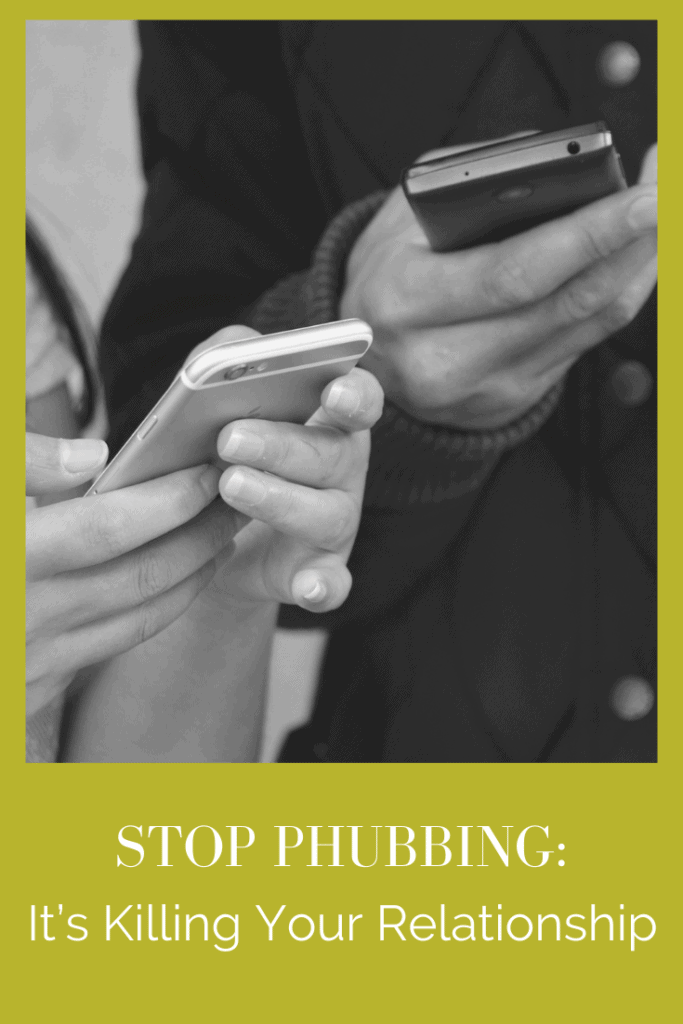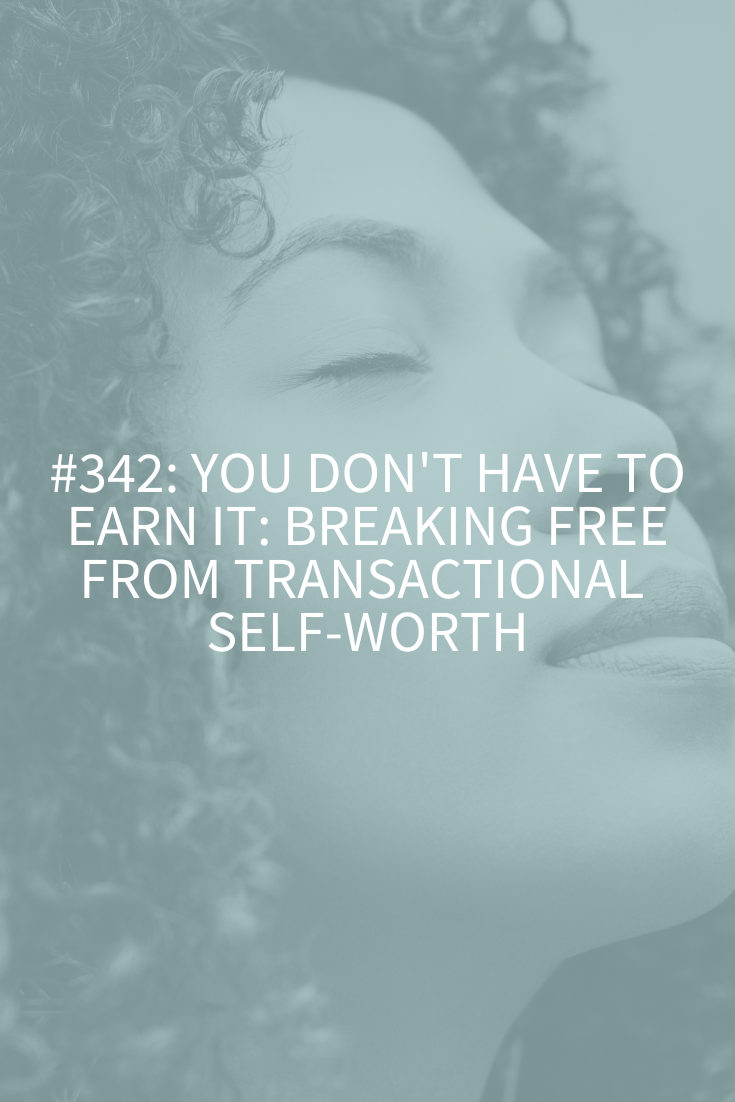
If you’re in a relationship, it’s almost a sure thing that you’ve phubbed or been phubbed. Phubbing is ignoring someone in favor of your phone and, whether intentional or not, it’s more detrimental to your relationship than you think.
In recent years, there’s been a good amount of research on phubbing and it’s been found to decrease marital satisfaction. It affects each partner’s feelings including how depressed they are and their overall satisfaction with life.
“Ironically, phubbing is meant to connect you, presumably, with someone through social media or texting,” says Emma Seppälä, a psychologist at Stanford and Yale universities and author of the Happiness Track. “But it actually can severely disrupt your present-moment, in-person relationships.”
Here’s the deal: we’re built, as a species, to be extremely attuned to others, especially our partners. Thus, when we think that someone (especially our partner) isn’t giving us their full attention, we feel disregarded, unheard and disrespected.
When you’re on your phone, it means you’re prioritizing something or someone else over your partner. End of story. Your partner is, arguably, your most important relationship, so what the heck are you doing and are you sure you want to send this message?
Research shows that when people have a conversation without their smartphone around (regardless of age, ethnicity, gender or starting mood), they feel more connected, report better, more productive conversations, and are much happier. At the end of the day, we feel more empathy and connection when our smartphones are put away.
In fact, studies have shown that just having a phone out during a conversation (I.e., sitting on the table next to you) interferes with your sense of connection to the other person, the feelings of closeness you experience, and the quality of the conversation.
When I ask couples about when they first met, they often tell me how they stayed up all night talking or how they used to talk for hours. It’s in these moments that we connect. It’s in these moments that we learn about our partners, share vulnerabilities, hear the tone of their voice, have eye contact and sense their body language. All of these pieces form the foundation of our relationships. If you want to have a close, trusting, intimate relationship with your partner, you’ve got to have good, face-to-face conversations and interactions.
There are a lot of misconceptions about sex and intimacy. Sex is not where you learn to be intimate with your partner. If you have a close, intimate sex life, it’s because you have a close, intimate emotional life. That’s how all that works.
MIT sociologist, Sherry Turkle, has been studying the impact of technology on how we behave (alone and in groups) for the last 20 years. Turkle’s research shows that 89% of Americans say that during their last social interaction, they took out a phone, despite the fact that 82% said that it deteriorated the conversation they were in! Basically, we’re doing something that we know is hurting our interactions.
In her studies, she’s found that if you put a cell phone into a social interaction, it does two things: First, it decreases the quality of what you talk about, because you talk about things where you wouldn’t mind being interrupted. Second, it decreases the empathic connection that people feel toward each other so they end up more disconnected and feeling like the conversation wasn’t satisfying.
And using a smartphone in social interactions doesn’t just hurt the relationship, it also devalues our own experience. One study found that people who used their smartphone while dining out with friends experienced less interest and enjoyment and more boredom than people who didn’t.
As if all that isn’t enough, studies have also shown that phubbing hurts our own mental health. Phubbing has been found to threaten four “fundamental needs’: self-esteem, meaningful existence, control, and belongingness. The act of phubbing causes people to feel excluded, diminished (I’m not that important) and ostracized.
As a race, we seem to be in complete denial when it comes to our phones. Although we see the damage when others phub us, we still do it ourselves! We keep checking our phones because, even though we might know it’s bad, it’s very difficult to “just stop” this compulsive behavior.
We check our phones, email and social media accounts because it provides us with what researchers call “variable-ratio” reinforcement. What this means is that, once in a while, we get an email, alert or message that is particularly rewarding, and that “once in a while” is enough to keep us checking compulsively the rest of the time. You might be interested to know that slot machines also provide variable-ratio rewards. (I would say that this is also the evil genius of Chuck E. Cheese).
Consider this: According to research by Wilhelm Hoffman of Chicago University, the urge to check social media is stronger than the urge for sex!
We are profoundly social creatures. Having connection and a sense of belonging are crucial for our health and happiness. Research has actually shown that lacking these connections (loneliness) can be worse for your health than smoking, high blood pressure, and obesity. So, we screw up. We look for connection on social media at the cost of face-to-face opportunities for true intimacy. Ironically, using our Smartphones tricks us into thinking we’re connected when, really, we’re sacrificing true close and connected relationships.
What Can I Do to Stop Phubbing?
If you want to stop phubbing, you’re going to need to make it a priority. This means you need to put mindfulness and self-awareness at the top of your “must do” list so that you’ll know when you’re phubbing. You’re going to need to remember that you can’t control others (I hate every time someone reminds me of this), so it’s all about you being the role model and acting how you want others to treat you. With that in mind, here are my top 7 tips so you can stop Phubbing and start connecting:
- Create Device-Free Special Spaces: Designate your car, kitchen table, bed, backyard or deck as a device-free zone. These spaces are set aside for face-to-face conversations only.
- Meal Times are Sacred. When you have lunch with a friend, a coffee break with a colleague or dinner with the family, don’t put a phone on the table. Make meals a time when you are there to listen and communicate. If you’re eating alone, still make it a device-free zone. Be with yourself, look around you and maybe even introduce yourself to the person at the next table.
- Do a Phone Fast. Stay off your phone completely for an entire day (or week-end). If you feel you just can’t do this, allocate fasting intervals during the day. Be off your phone (have it locked in a drawer or leave it in your car) from 9:00am to 12:00pm and again from 1:00pm to 4:00pm. Maybe only check your phone at two preset times per day, for no more than 15 minutes at a time.
- Don’t Replace Face-to-Face Interactions with Electronic Ones. There’s a butt-load of research out there that says one of the very best things you can do for both your mental and physical health is to build strong social relationships, and those relationships we have in person are more intimate and connected. Yes, you might have a follower on Instagram that you “chat” with all the time (texting or posting) but, if you got sick, would this person bring over some chicken soup and a People magazine? Confusing lots of contact with actual closeness and intimacy is a problem. Instead of spending all that time “chatting” on social media, make a lunch date with a friend and spend some quality time. We know that any activities that involve other people, whether it’s going to a party, sitting down for lunch, playing sports or attending religious services, all have positive effects on our mental health. In the end, face-to-face social interactions tend to improve our mood and reduce depression.
- Hide Your Phone. Keep your phone out of sight during conversations. Don’t just turn it over. Literally, put it away in your pocket, backpack, desk drawer or bag.
- See How Often You’re Checking. Knowing how much time you’re really on your devices can help break through any denial you might have. You can Install Checky, a phone habit tracker on your mobile devices, or RescueTime on your computer so you can see how often you’re checking email, social media, etc.
- Shift Your Perspective. If you’re the one being phubbed, try not to take offense or get upset. Remember, the other person is following a biologically-driven impulse. Do your best to be compassionate and patient and let the other person know how phubbing makes you feel and set a boundary that you aren’t OK with it when you’re interacting.
The next time you’re with another human being and you feel tempted to pull out your phone — stop yourself and put it away. Then, take the opportunity to look them directly in the eyes and really listen to what they have to say.






